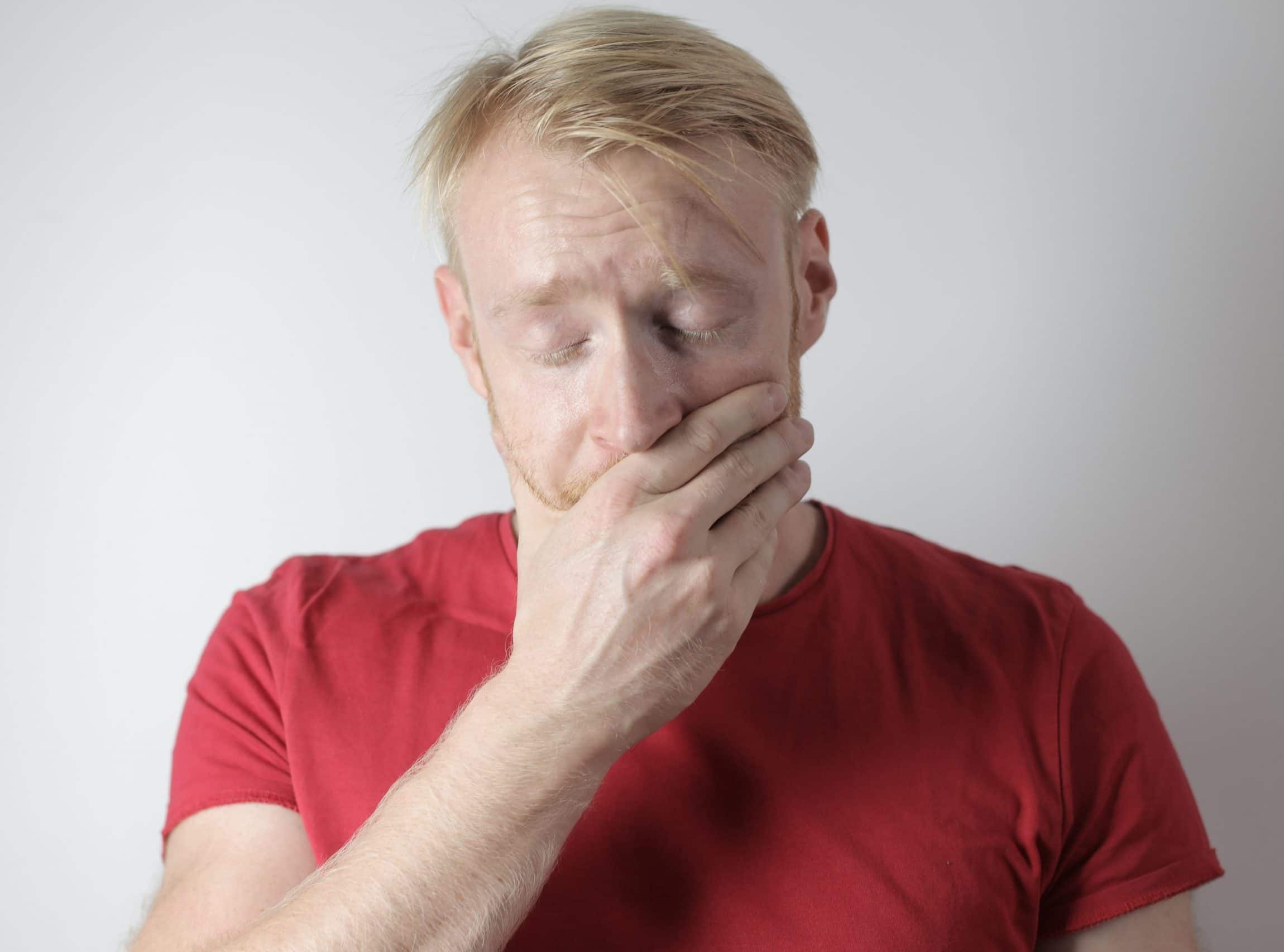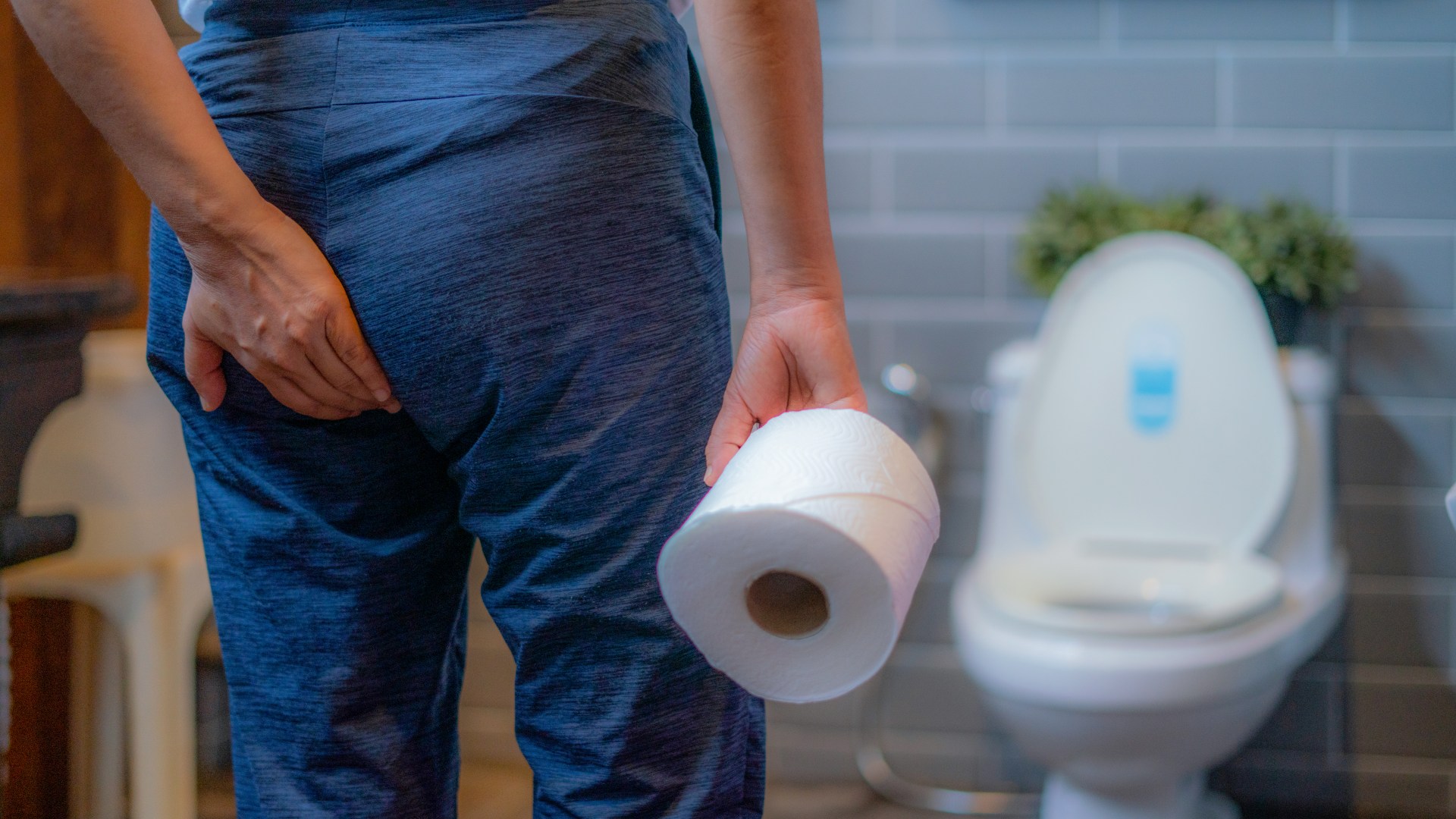

FAQs
Why Do You Fart When You Cough
Modified: August 5, 2023
Find out the answer to one of life's most embarrassing questions - why do you fart when you cough? Learn the explanation and more on general questions.
(Many of the links in this article redirect to a specific reviewed product. Your purchase of these products through affiliate links helps to generate commission for Under-tec.com, at no extra cost. Learn more)
Table of Contents
Introduction
Have you ever wondered why you sometimes, embarrassingly, fart when you cough? The phenomenon of farting when coughing is more common than you may think, and it can happen to anyone. While it may seem like an awkward and humorous situation, there is actually a scientific explanation behind it.
To understand why farting occurs when you cough, it is essential to delve into the physiology of farting. Farting, also known as flatulence, is a natural bodily function. It is the release of gas from the digestive system through the rectum. This gas can be a combination of swallowed air and gases produced by the bacteria in the intestines during the digestion process.
When it comes to coughing, it is a reflex action that helps clear the airways of irritants. The diaphragm, a muscle located between the chest and abdomen, contracts forcefully during coughing, causing a strong expulsion of air from the lungs. This forceful release of air can put additional pressure on the digestive system, potentially leading to the release of gas.
The relationship between coughing and farting is not a direct one, but rather an indirect cause-and-effect connection. When you cough, the rapid and forceful movement of the diaphragm places pressure on the abdominal organs, including the intestines. This increased intra-abdominal pressure can cause the trapped gas in the intestines to be expelled via the rectum, resulting in a fart.
While farting when coughing can be embarrassing or even socially awkward, it is a natural bodily response. It can happen to anyone, regardless of age or gender. However, certain factors can contribute to an increased likelihood of experiencing this phenomenon, which we will explore in the next section.
Understanding the Physiology of Farting
To understand the physiology of farting, it is crucial to know how gas forms in our digestive system. The gas in our intestines is mainly a byproduct of the digestion process. When we eat or drink, we swallow air along with our food. This air can accumulate in the digestive tract and contribute to the gas content.
Additionally, the bacteria present in our intestines play a significant role in producing gas as they break down certain food components that are not fully digested. These bacteria ferment carbohydrates, such as fiber and sugars, producing gases like hydrogen, methane, and carbon dioxide.
Once the gas is produced, it needs to be expelled from our bodies. The majority of gas is passed out through burping, as the gas accumulated in the stomach is released through the mouth. However, some gas makes its way down the digestive tract and exits through the rectum as a fart.
When it comes to farting, the anal sphincter plays a vital role. This ring of muscles surrounds the opening of the rectum, acting as a valve to control the release of gas. Normally, the anal sphincter remains closed, keeping the gas inside until we voluntarily release it.
However, certain factors can affect the release of gas, such as the amount of gas present in the colon, the strength of the anal sphincter muscles, and the internal pressure within the gastrointestinal tract. When the internal pressure exceeds the strength of the anal sphincter muscles, gas is expelled as a fart.
It is important to note that farting is a normal bodily function and is usually nothing to be concerned about. The average person passes gas around 13 to 21 times a day, though this can vary depending on factors like diet and overall digestive health.
Now that we have a better understanding of how gas is produced and expelled from our bodies, let’s explore the relationship between coughing and farting in the next section.
The Relationship between Coughing and Farting
While coughing and farting may seem like unrelated bodily functions, there is indeed a connection between the two. The relationship lies in the pressure exerted on the abdominal region during a coughing episode, which can result in the release of gas through the rectum.
When you cough, multiple physiological changes occur in the body. The forceful contraction of the diaphragm and the subsequent rapid expulsion of air from the lungs can create an increase in intra-abdominal pressure. This increased pressure affects the organs in the abdominal region, including the intestines.
The increased pressure can cause the trapped gas in the intestines to be pushed towards the rectum, leading to the release of a fart. The forceful expulsion of air from the lungs during a cough can essentially act as a catalyst for releasing the built-up gas in the digestive system.
It is important to note that not everyone experiences farting when coughing, as the release of gas is dictated by individual factors such as the amount of gas present in the intestines, the strength of the anal sphincter muscles, and the overall health of the digestive system.
Furthermore, certain medical conditions can increase the likelihood of experiencing farting when coughing. Individuals with gastrointestinal disorders such as irritable bowel syndrome (IBS) or inflammatory bowel disease (IBD) may have a higher sensitivity to changes in intra-abdominal pressure and may be more prone to experiencing this phenomenon.
In some cases, medication or lifestyle factors can also influence the likelihood of farting when coughing. Certain medications, such as those used to treat gastrointestinal conditions, can affect the gas production in the digestive system and may contribute to increased flatulence. Similarly, dietary choices such as consuming gas-inducing foods like beans, cabbage, or carbonated drinks can also play a role.
Overall, the relationship between coughing and farting is based on the concept of increased intra-abdominal pressure during a cough. While it may be an embarrassing or humorous occurrence, it is important to remember that it is a natural phenomenon that can happen to anyone. In the next section, we will explore some of the common causes of farting when coughing.
Causes of Farting When Coughing
There are several factors that can contribute to farting when coughing. While the relationship between the two may seem indirect, these causes can increase the likelihood of experiencing this phenomenon:
1. Increased Intra-abdominal Pressure: When you cough, the forceful contraction of the diaphragm and the subsequent expulsion of air from the lungs can increase the pressure in the abdominal region. This increased pressure can push trapped gas in the intestines towards the rectum, leading to farting.
2. Digestive Disorders: Individuals with digestive disorders like irritable bowel syndrome (IBS) or inflammatory bowel disease (IBD) may have a higher sensitivity to changes in intra-abdominal pressure. These conditions can cause excess gas production and make the intestines more susceptible to releasing gas when pressure increases during a cough.
3. Medications: Certain medications, particularly those used to treat digestive disorders, can affect the gas production in the digestive system. Some medications may increase gas production, while others may affect the muscle contractions in the intestines, making it easier for gas to be expelled.
4. Dietary Choices: Consuming gas-inducing foods can contribute to farting when coughing. Foods high in fiber, such as beans, lentils, and cabbage, can produce more gas during the digestion process. Additionally, carbonated drinks can introduce excess air into the digestive system, further contributing to flatulence.
5. Weak Anal Sphincter Muscles: The strength of the anal sphincter muscles plays a role in the control and release of gas. If the muscles are weak, they may not be able to hold back the gas when the pressure increases during a cough, resulting in farting.
6. Digestive Health: The overall health of the digestive system can also impact farting when coughing. If there are underlying digestive issues, such as bacterial overgrowth or malabsorption, it can lead to excess gas production and make the intestines more sensitive to pressure changes.
It is important to remember that while farting when coughing can be embarrassing or uncomfortable, it is a natural bodily function. If you find that this phenomenon occurs frequently and causes distress or disrupts your daily life, it may be beneficial to consult with a healthcare professional to rule out any underlying digestive issues or seek appropriate management strategies.
Strategies to Prevent or Reduce Farting When Coughing
Farting when coughing can be an embarrassing and uncomfortable experience, but there are strategies that can help prevent or reduce the occurrence of this phenomenon:
1. Be Mindful of Your Diet: Pay attention to your diet and identify any specific foods that may contribute to excess gas production. Foods such as beans, lentils, broccoli, and carbonated beverages are known to increase gas in the digestive system. Limiting or avoiding these foods can help reduce the likelihood of farting when coughing.
2. Eat and Drink Slowly: Eating and drinking too quickly can lead to swallowing excessive amounts of air, which can contribute to gas buildup in the digestive system. Take your time when eating meals and make a conscious effort to chew food thoroughly before swallowing. Also, minimize the use of straws and try sipping beverages rather than guzzling them.
3. Manage Digestive Disorders: If you have a diagnosed digestive disorder such as IBS or IBD, work with your healthcare provider to develop a treatment plan that effectively manages your symptoms and reduces gas production. This may involve dietary modifications, medication, stress management techniques, and other interventions tailored to your specific condition.
4. Stay Hydrated: Drinking an adequate amount of water can help support healthy digestion and prevent constipation, which can lead to excess gas. Aim to drink at least 8 cups (64 ounces) of water per day, or more if recommended by your healthcare provider.
5. Practice Relaxation Techniques: Stress and anxiety can exacerbate digestive symptoms and increase the likelihood of farting when coughing. Engaging in relaxation techniques such as deep breathing exercises, yoga, meditation, or taking regular breaks to unwind can help reduce stress levels and promote better digestive health.
6. Exercise Regularly: Regular physical activity can help stimulate digestion and reduce gas buildup in the intestines. Aim for at least 30 minutes of moderate-intensity exercise, such as brisk walking, jogging, or cycling, on most days of the week.
7. Seek Medical Advice: If farting when coughing persists or causes significant discomfort, it is advisable to seek medical advice. A healthcare professional can evaluate your symptoms, perform necessary tests, and provide appropriate guidance and treatment options based on your specific circumstances.
It’s important to remember that occasional farting when coughing is a normal bodily function. However, if you experience excessive flatulence, abdominal pain, bloating, or other digestive symptoms alongside farting when coughing, it’s important to consult with a healthcare professional for further evaluation and management.
Conclusion
Farting when coughing may be an awkward and humorous experience, but it is a natural bodily response that can happen to anyone. The relationship between coughing and farting lies in the increased intra-abdominal pressure during a cough, which can lead to the release of trapped gas through the rectum.
Understanding the physiology of farting helps us comprehend why this phenomenon occurs. Gas is produced in the digestive system through the digestion process and is expelled either through burping or as a fart. The release of gas is influenced by factors such as the amount of gas in the intestines, the strength of the anal sphincter muscles, and the internal pressure within the gastrointestinal tract.
Several causes can contribute to farting when coughing, including digestive disorders, certain medications, dietary choices, weak anal sphincter muscles, and overall digestive health. By being mindful of our diet, managing digestive disorders, practicing healthy habits, and seeking medical advice when necessary, we can reduce the occurrence of farting when coughing.
It’s important to remember that farting when coughing is a natural bodily function and should not cause significant concern. However, if you experience excessive flatulence, abdominal pain, bloating, or other digestive symptoms alongside farting when coughing, it is advisable to consult with a healthcare professional to rule out any underlying conditions or seek appropriate management strategies.
So, the next time you find yourself in a situation where you fart when you cough, remember that it’s a completely normal bodily response. Embrace the awkwardness with a sense of humor and know that you’re not alone.










